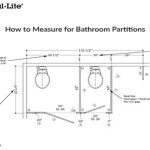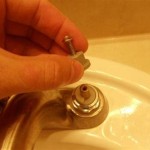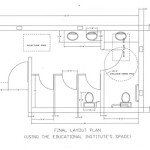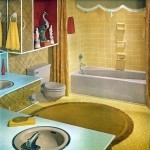Best Drain Cleaner for Bathroom Sinks
Clogged bathroom sinks are a common household nuisance, often caused by a buildup of hair, soap scum, toothpaste, and other debris. While prevention through regular maintenance is ideal, sometimes a clog requires a more potent solution. Choosing the right drain cleaner can effectively address the issue without damaging pipes. This article explores several types of drain cleaners and provides guidance on selecting the best option for bathroom sink clogs.
Chemical Drain Cleaners
Chemical drain cleaners are a popular choice due to their convenience and effectiveness. They utilize various chemical reactions to dissolve clogs. Understanding the different types of chemical drain cleaners is crucial for selecting the appropriate product.
Caustic drain cleaners, often containing sodium hydroxide (lye) or potassium hydroxide, create a chemical reaction that generates heat to melt away greasy clogs. These are effective against soap scum and grease buildup, common culprits in bathroom sink clogs. However, they can damage certain types of pipes, including PVC, with prolonged exposure. Always check the product label for compatibility information.
Oxidizing drain cleaners contain chemicals like bleach or nitrates that release oxygen to break down organic matter such as hair and food particles. While less damaging to pipes than caustic cleaners, oxidizing cleaners are generally less effective on heavy grease clogs. They are a good option for mild to moderate blockages and are safer for pipes sensitive to harsh chemicals.
Acid drain cleaners, often containing sulfuric acid, are the most powerful type and are typically reserved for severe clogs. These cleaners are highly corrosive and should be used with extreme caution, following all safety precautions on the product label. Due to their potential to damage pipes, acid drain cleaners are generally not recommended for routine bathroom sink maintenance.
Enzymatic Drain Cleaners
Enzymatic drain cleaners offer a more environmentally friendly approach to clearing clogs. They utilize natural enzymes to break down organic matter such as hair, soap scum, and grease. While they require more time to work than chemical cleaners, enzymatic options are less corrosive and safer for pipes and the environment. They are an excellent choice for regular maintenance and preventing future clogs.
These cleaners work best as a preventative measure or for addressing slow-draining sinks. Because they rely on biological processes, they may not be as effective on severe, fully blocked drains. However, regular use can help maintain clear pipes and prevent the buildup of organic material.
Mechanical Drain Cleaners
Mechanical drain cleaners provide a non-chemical approach to removing clogs. These tools physically remove the blockage rather than dissolving it. Several options exist for tackling different types of clogs.
Drain snakes, also known as plumbing snakes or augers, are flexible tools that can be inserted into the drain to snag and pull out hair, soap scum, and other debris. They are effective for reaching deeper clogs and are available in various lengths and thicknesses for different drain sizes.
Sink plungers create suction to dislodge clogs. Cup plungers are the most common type for bathroom sinks. Ensure a tight seal around the drain opening and use firm, consistent plunging motions to create the necessary pressure to clear the blockage.
Zip-It tools are inexpensive plastic strips with barbs that can be inserted into the drain to catch and remove hair and other debris. These are a good option for addressing hair-related clogs near the drain opening.
Choosing the Right Drain Cleaner
Selecting the appropriate drain cleaner depends on the severity of the clog, pipe material, and environmental concerns. For minor clogs or regular maintenance, enzymatic cleaners or mechanical methods like a zip-it tool or plunger are often sufficient. For tougher clogs, a caustic or oxidizing chemical cleaner may be necessary, ensuring compatibility with pipe materials.
Always prioritize safety when using any drain cleaner. Wear protective gloves and eye protection, and ensure adequate ventilation. Carefully follow the instructions on the product label. If a clog persists after multiple attempts, it's advisable to consult a professional plumber to avoid potential damage to the plumbing system.
Preventing Bathroom Sink Clogs
Preventing clogs is often easier than clearing them. Implementing simple preventative measures can significantly reduce the frequency of bathroom sink blockages.
Regularly flush the drain with hot water to help prevent the buildup of soap scum and grease. Install a drain strainer to catch hair and other debris before it enters the drain. Avoid pouring grease or oil down the drain. Periodically use an enzymatic drain cleaner or baking soda and vinegar to help maintain clear pipes.

9 Best Drain Cleaners Of 2024 For Clogged Sinks Toilets Tubs

Top Liquid Drain Cleaner S And Clog Prevention Methods To Use

The 10 Best Drain Cleaners In 2024

8 Best Drain Cleaners For All Clogs In 2024 Plus Expert Tips

How To Clean Drains And Unclog Shower Or Sink Today

Green Gobbler Vs Drano Which Drain Cleaner Is Better Prudent Reviews

Buy Selemi Sink Drain Blockage Cleaner Toilet Unclogs Pipe Dredging Agent Pack Of 1 110 G At Best S In Jiomart
What Is The Best Homemade Drain Cleaner Quora

How To Clean Drains And Unclog Shower Or Sink Today

What Drain Cleaner Is Safe For Septic Systems Mr Rooter Plumbing
Related Posts







